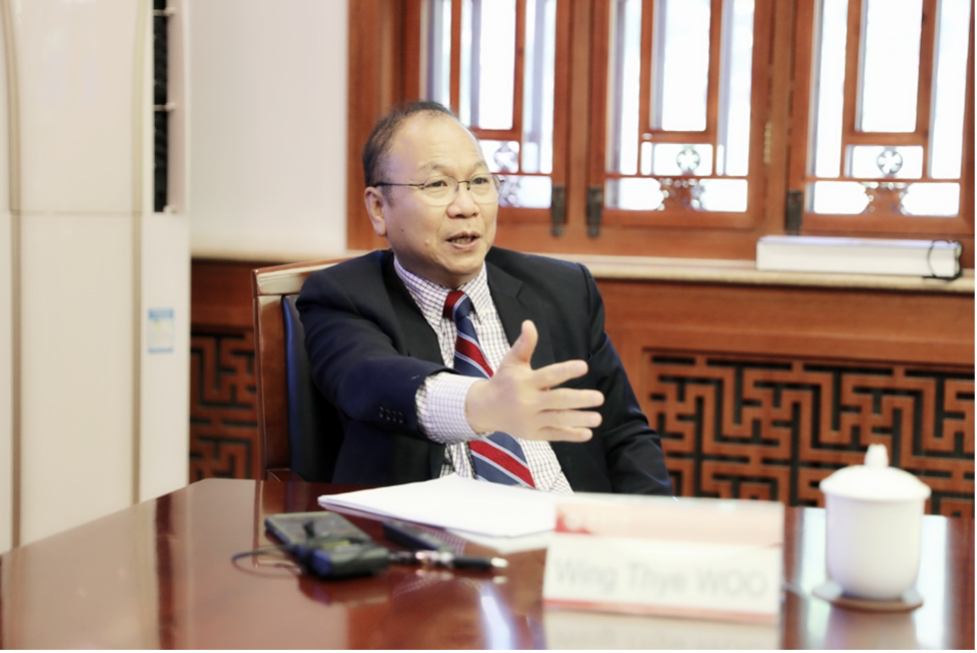
“ASEAN's Role in Preserving the Multilateral Trade System in the 'New International Normal'", the fourth in the series of lectures marking the fifth anniversary of the establishment of the Institute of Area Studies, Peking University (PKUIAS), was held on June 6, 2023.
Wing Thye Woo, a renowned economist from the University of California, Davis, was the speaker. The salon was moderated by Kong Tao, associate research fellow at the Institute of Social Science Survey, PKU.
Prof. Woo started by reviewing Adam Smith’s views on trade and pointed out that Smith believed in creating win-win outcomes. According to Smith, over the last two hundred years, genocide and slavery were not caused by trade but were the undesirable consequences of the difference in military power between Europe and the rest of the world. However, over time, a situation of “equality in forces” was obtained between Europe and the rest of the world due to the mutual communication of knowledge and improvements that came along with free-ranging commerce. Smith believed that trade creates win-win outcomes under conditions of equilibrium.
Subsequently, Prof. Woo introduced the political foundation of US trade policy. He pointed out that there are three groups in the US: (1) Those who have always supported conducting a trade war with China, represented by Steve Bannon; (2) Those who tend to oppose the US engaging in a trade war with China, mainly composed of multinational corporations (especially Big Finance and High Tech, as profit is maximized when market size is maximized); (3) Those who have an internationalist perspective of a multi-polar world, and want to co-opt China to become a responsible stakeholder in global governance, represented by Henry Kissinger. Prof. Woo showed that none of the three groups has been strong enough to launch (or stop) a trade war. Action is determined by a majority coalition. For example, a coalition of groups 2 and 3 ensured the successful negotiation with China in November 1999 over China’s WTO membership. Then, Prof. Woo used the GTAP model to analyze the US suppression of technological transfers to China.
After a discussion of the theoretical ideas of economics and the logic of decision-making in US trade policy, Prof. Woo focused on the measures that ASEAN should take. For ASEAN, the key to navigating the current international situation is to maintain US–China tensions below a critical level. The upward spiral in US–China tensions comes from the interaction amongst three types of competition: trade, technology and geo-strategic concerns. To stop this spiral, China and US must keep trade competition, technological competition, and geo-strategic competition separate. For example, the US should not restrict the export of advanced micro-chips (trade war instruments) to China in response to their geo-strategic competition. At the same time, ASEAN must unite to become a big player to work with multilateral institutions. ASEAN should help keep US–China tensions from rising too high, integrate aid from the US and China to accelerate achieving the UN’s Sustainable Development Goals and maintain a multilateral free trade system.
After the lecture, the audience asked questions about the impact of the technology competition between the US and China and on technology and industrial upgrading in ASEAN countries as well as the digital economy in Southeast Asian countries.


